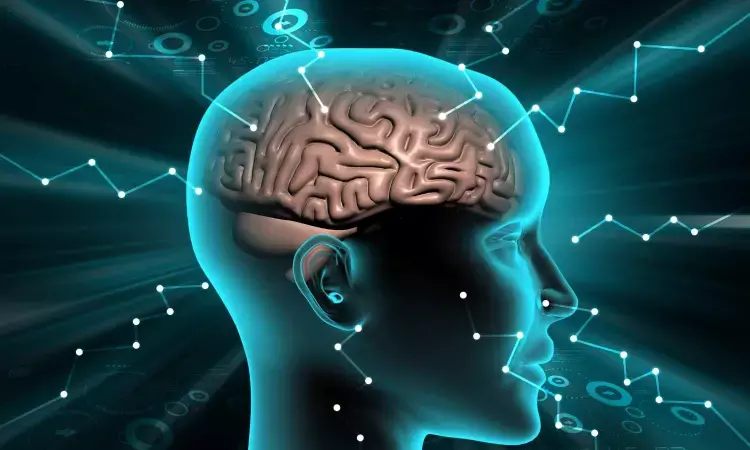- Home
- Medical news & Guidelines
- Anesthesiology
- Cardiology and CTVS
- Critical Care
- Dentistry
- Dermatology
- Diabetes and Endocrinology
- ENT
- Gastroenterology
- Medicine
- Nephrology
- Neurology
- Obstretics-Gynaecology
- Oncology
- Ophthalmology
- Orthopaedics
- Pediatrics-Neonatology
- Psychiatry
- Pulmonology
- Radiology
- Surgery
- Urology
- Laboratory Medicine
- Diet
- Nursing
- Paramedical
- Physiotherapy
- Health news
- Fact Check
- Bone Health Fact Check
- Brain Health Fact Check
- Cancer Related Fact Check
- Child Care Fact Check
- Dental and oral health fact check
- Diabetes and metabolic health fact check
- Diet and Nutrition Fact Check
- Eye and ENT Care Fact Check
- Fitness fact check
- Gut health fact check
- Heart health fact check
- Kidney health fact check
- Medical education fact check
- Men's health fact check
- Respiratory fact check
- Skin and hair care fact check
- Vaccine and Immunization fact check
- Women's health fact check
- AYUSH
- State News
- Andaman and Nicobar Islands
- Andhra Pradesh
- Arunachal Pradesh
- Assam
- Bihar
- Chandigarh
- Chattisgarh
- Dadra and Nagar Haveli
- Daman and Diu
- Delhi
- Goa
- Gujarat
- Haryana
- Himachal Pradesh
- Jammu & Kashmir
- Jharkhand
- Karnataka
- Kerala
- Ladakh
- Lakshadweep
- Madhya Pradesh
- Maharashtra
- Manipur
- Meghalaya
- Mizoram
- Nagaland
- Odisha
- Puducherry
- Punjab
- Rajasthan
- Sikkim
- Tamil Nadu
- Telangana
- Tripura
- Uttar Pradesh
- Uttrakhand
- West Bengal
- Medical Education
- Industry
Playing piano boosts brain processing power and helps lift depression

Music brings joy and consolation to humans which greatly enriches people's lives. However, whether playing musical instruments is linked to improving depression, stress and anxiety is not known.
Researchers at the University of Bath have found in a new study that Playing piano boosts brain processing power and helps lift depression. Further the study has demonstrated the positive impact learning to play a musical instrument has on the brain's ability to process sights and sounds, and shows how it can also help to lift a blue mood.
The findings of the study have been published in the academic journal Nature Scientific Reports.
The team behind the study shows how beginners who undertook piano lessons for just one hour a week over 11 weeks reported significant improvements in recognising audio-visual changes in the environment and reported less depression, stress and anxiety.
In the randomised control study, 31 adults were assigned into either a music training, music listening, or a control group. Individuals with no prior musical experiences or training were instructed to complete weekly one-hour sessions. Whilst the intervention groups played music, the control groups either listened to music or used the time to complete homework.
The researchers found that within just a few weeks of starting lessons*, people's ability to process multisensory information-i.e., sight and sound-was enhanced. Improved 'multisensory process' has benefits for almost every activity we participate in-from driving a car and crossing a road, to finding someone in a crowd or watching TV.
These multisensory improvements extended beyond musical abilities. With musical training, people's audio-visual processing became more accurate across other tasks. Those who received piano lessons showed greater accuracy in tests where participants were asked to determine whether sound and vision 'events' occurred at the same time.
This was true both for simple displays presenting flashes and beeps, and for more complex displays showing a person talking. Such fine-tuning of individuals' cognitive abilities was not present for the music listening group (where participants listened to the same music as played by the music group), or for the non-music group (where members studied or read).
In addition, the findings went beyond improvements in cognitive abilities, showing that participants also had reduced depression, anxiety and stress scores after the training compared to before it. The authors suggest that music training could be beneficial for people with mental health difficulties, and further research is currently underway to test this.
Cognitive psychologist and music specialist Dr Karin Petrini from the University of Bath's Department of Psychology, explained: "We know that playing and listening to music often brings joy to our lives, but with this study we were interested in learning more about the direct effects a short period of music learning can have on our cognitive abilities.
"Learning to play an instrument like the piano is a complex task: it requires a musician to read a score, generate movements and monitor the auditory and tactile feedback to adjust their further actions. In scientific terms, the process couples visual with auditory cues and results in a multisensory training for individuals.
"The findings from our study suggest that this has a significant, positive impact on how the brain processes audio-visual information even in adulthood when brain plasticity is reduced."
Reference:
Che, Y., Jicol, C., Ashwin, C. et al. An RCT study showing few weeks of music lessons enhance audio-visual temporal processing. Sci Rep 12, 20087 (2022). https://doi.org/10.1038/s41598-022-23340-4
Dr Kamal Kant Kohli-MBBS, DTCD- a chest specialist with more than 30 years of practice and a flair for writing clinical articles, Dr Kamal Kant Kohli joined Medical Dialogues as a Chief Editor of Medical News. Besides writing articles, as an editor, he proofreads and verifies all the medical content published on Medical Dialogues including those coming from journals, studies,medical conferences,guidelines etc. Email: drkohli@medicaldialogues.in. Contact no. 011-43720751


